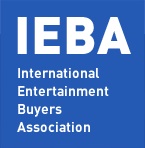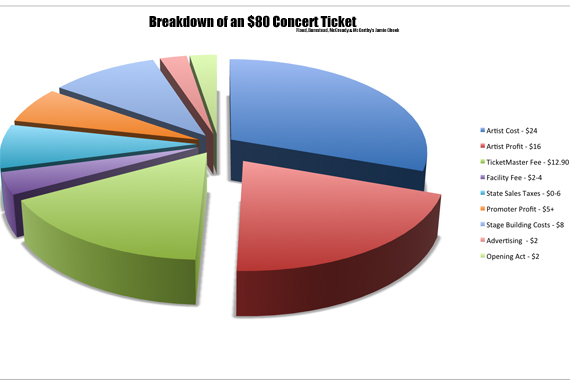
 By Michael Smith and Eric Parker
By Michael Smith and Eric Parker
The International Entertainment Buyers Association (IEBA) held its 43rd annual conference at Nashville’s Omni Hotel from Oct. 19-22. The conference, which featured several panels during the day and music showcases in the evening, was capped with the IEBA Honors and the SRO Awards. MusicRow attended two panels for the conference on Tuesday, Oct. 22: Are Agents the New A&R Directors? and A Financial Breakdown of Touring Revenues & Expenses.
Examining business dealings on the road, Flood, Bumstead, McCready & McCarthy’s Jamie Cheek, who received the CMA’s 2013 SRO Business Manager of the Year award, discussed touring costs and revenues for artists at various stages in their careers. Cheek noted that most newly signed Country acts may at best reap minuscule profits after touring for a year. For example, a newly signed act may generate $362,000 of income and $359,000 of expenses, resulting in profits of only a few thousand dollars. An artist at this level, however, can make a living by selling merchandise.
Mid- and veteran-level acts incur higher touring costs, but receive higher profits. Cheek estimated a veteran act may earn $740,000 from merchandise sales alone. Wildly successful acts that sell out arenas (e.g. Kenny Chesney, Taylor Swift, Tim McGraw, etc.) receive the most jaw dropping profits. An act of this ilk may earn $19 million and incur $11 million in expenses after a year of touring, resulting in a net income of $8 million. Merchandise can earn the artist another $2 million. With money to spare, it’s no surprise that artists at this level begin chartering private planes at an estimated cost of $20,000 per show.
Cheek caught the audience’s attention when he broke down an $80 concert ticket and explained who profits from each dollar.

• • •

Pictured (L-R): Mike Dungan (UMG), Rob Beckham (WME), Marc Dennis (CAA), Steve Lassiter (APA), Jonathan Levine (Paradigm), Paul Lohr (New Frontier Touring), and Kevin Neal (BLA)
For the Mike Dungan-led panel discussing whether agents are the new A&R directors, insights were offered from agents including Rob Beckham (WME), Marc Dennis (CAA), Steve Lassiter (APA), Jonathan Levine (Paradigm), Paul Lohr (New Frontier Touring), and Kevin Neal (BLA).
Dennis used CAA act Kip Moore as an example of the reversed process in which the UMG newcomer was signed to the agency prior to the label. “It takes a long time to break an artist on the road and Kip already would have equity in markets when promotion called,” explained Dennis. “We can assist a label with having an artist prepared when a spotlight is shined on them.” Lassiter countered the notion that agents have “no skin in the game,” referring to the fact that agents don’t pay advances or have sunk development costs. “What agents hand over is manpower,” said Lassiter. “It costs a lot of money to have our staff working them.”
Levine says of the lessons he’s learned in 30 years in the business: “The locomotive of touring pulls the whole rest of the train—airplay and sales are driven by live performances. It’s our job as agents to see the spark where an artist is connecting to fans and bring them to a larger and larger audience, to hopefully international.” It is important to emphasize the power of live concerts, because as Lohr contributed regarding promotion: “radio popularity doesn’t necessarily translate to ticket sales.”
One recent spark in the spotlight is Neal’s Florida Georgia Line, managed by Seth England at Big Loud Mountain. “When Jason Aldean picked “Black Tears” (written by FGL’s Tyler Hubbard), I was able to put FGL out with Colt Ford’s show,” said Neal. “I was sold with the way they acted and treated the audience. England wasn’t in a rush to get a label deal, so I setup secondary radio with Marco Promotions. FGL has gone faster than anything I’ve seen before.”
The panel of agents then revealed some thoughts on social media. “The advent of Soundscan or BDS was very helpful, “ said Lassiter. “Whether it’s views/followers/likes, you’re able to geo-target much more efficiently—it’s a hell of a lot better than hoping your banner ad worked.” Beckham noted social tallies may be misleading in a world of manipulation: “It sounds cool to calculate socials, but how many did the artist purchase? Blake Shelton is a rare example of an artist that can sell a ticket from a tweet.” Dennis chimed in about the sentiment behind social media’s helpful hand. “Fan bases like to feel like they’ve discovered the music, and they will be extremely loyal if they do,” said Dennis.
Regarding a prompt from Dungan about female acts on the road, Beckham noted: “Danielle Bradbery has a launching pad from The Voice, but it depends on how hard you want to work on the road,” echoing the notion that it’s “sometimes harder for a female to have the desire to hop in a van and trailer early on.”
Dungan summed up the panel with a statement about the current state of the industry, “It’s a different world that it was 10 years ago. Everyone is involved from the ground up.”



